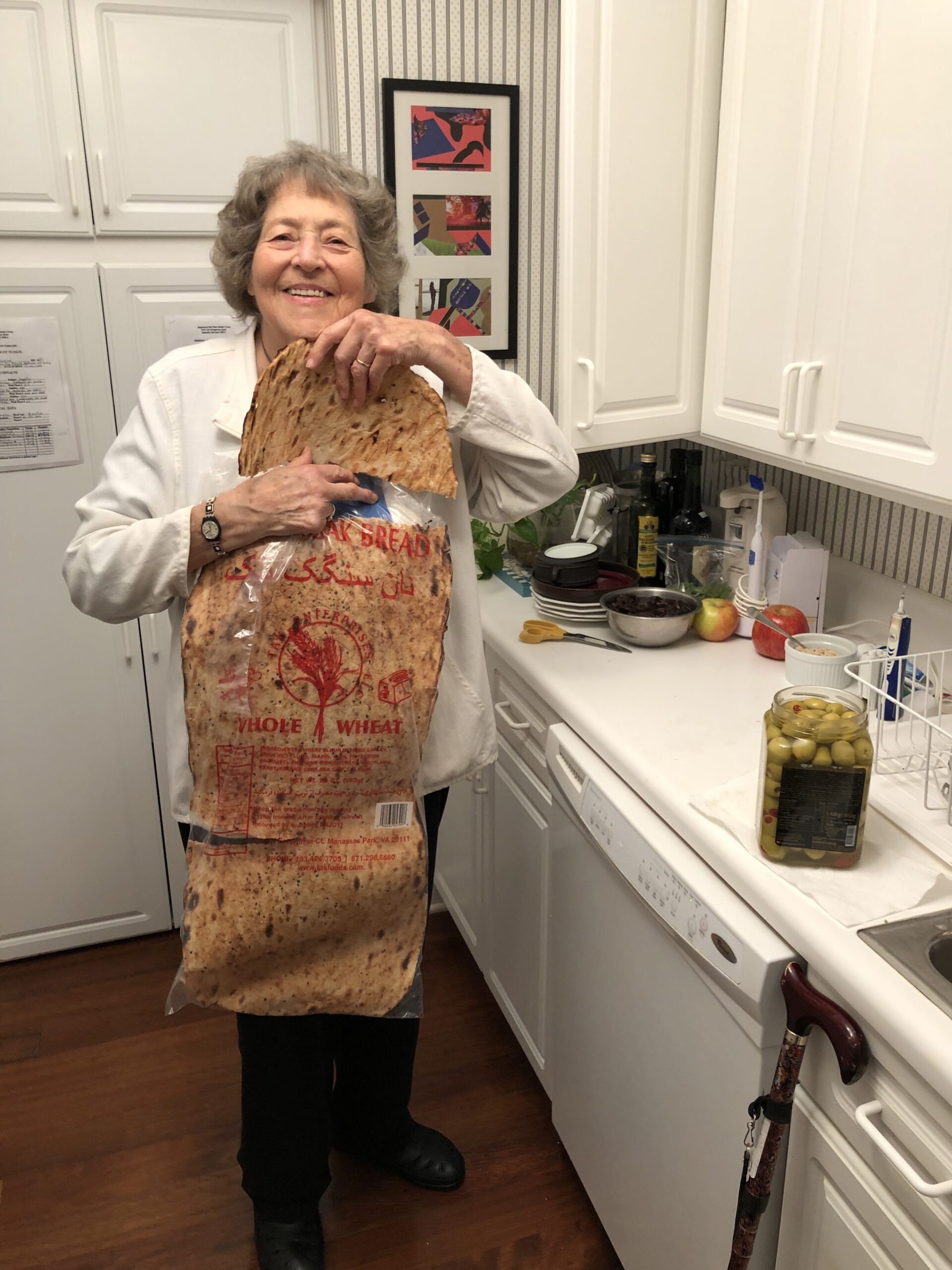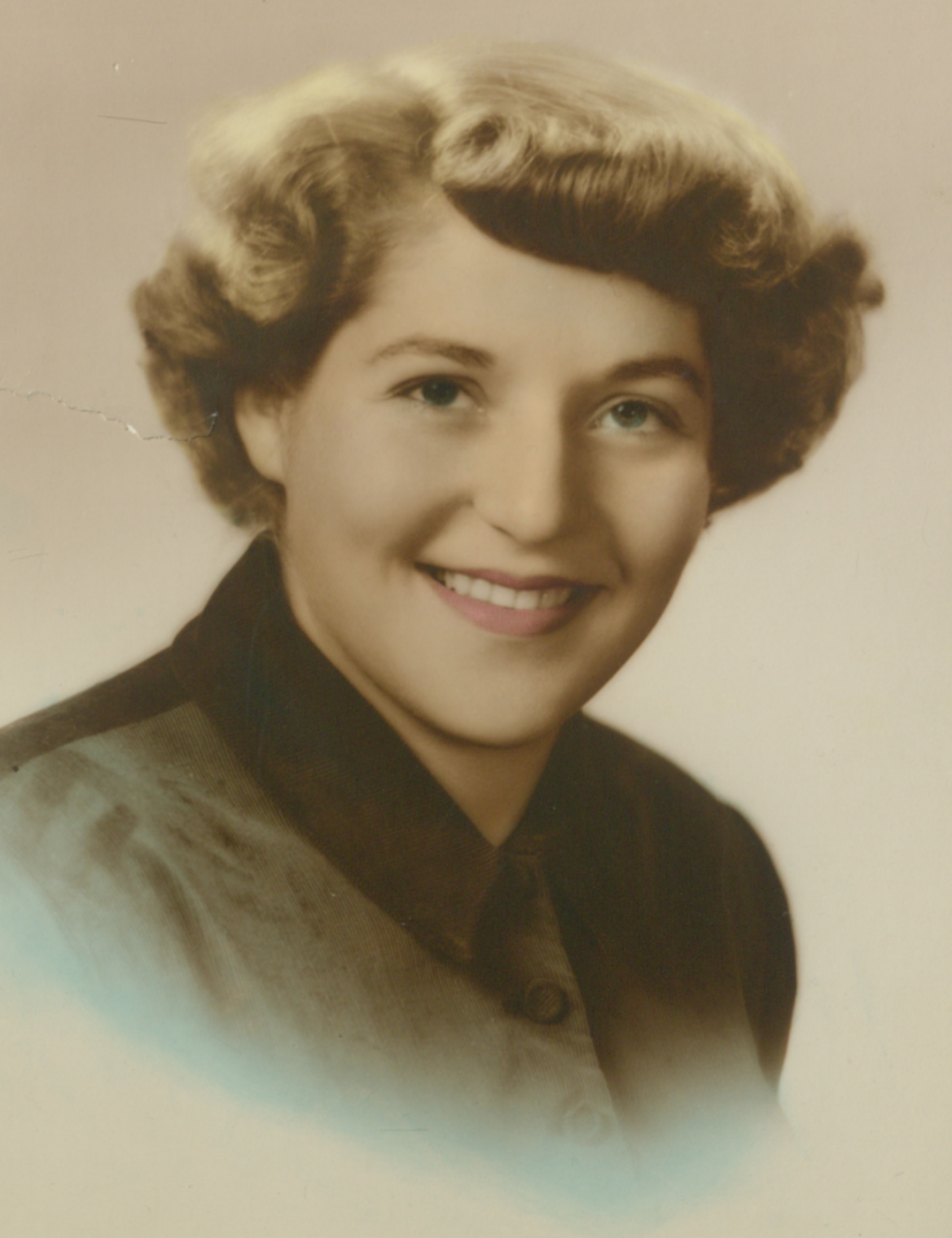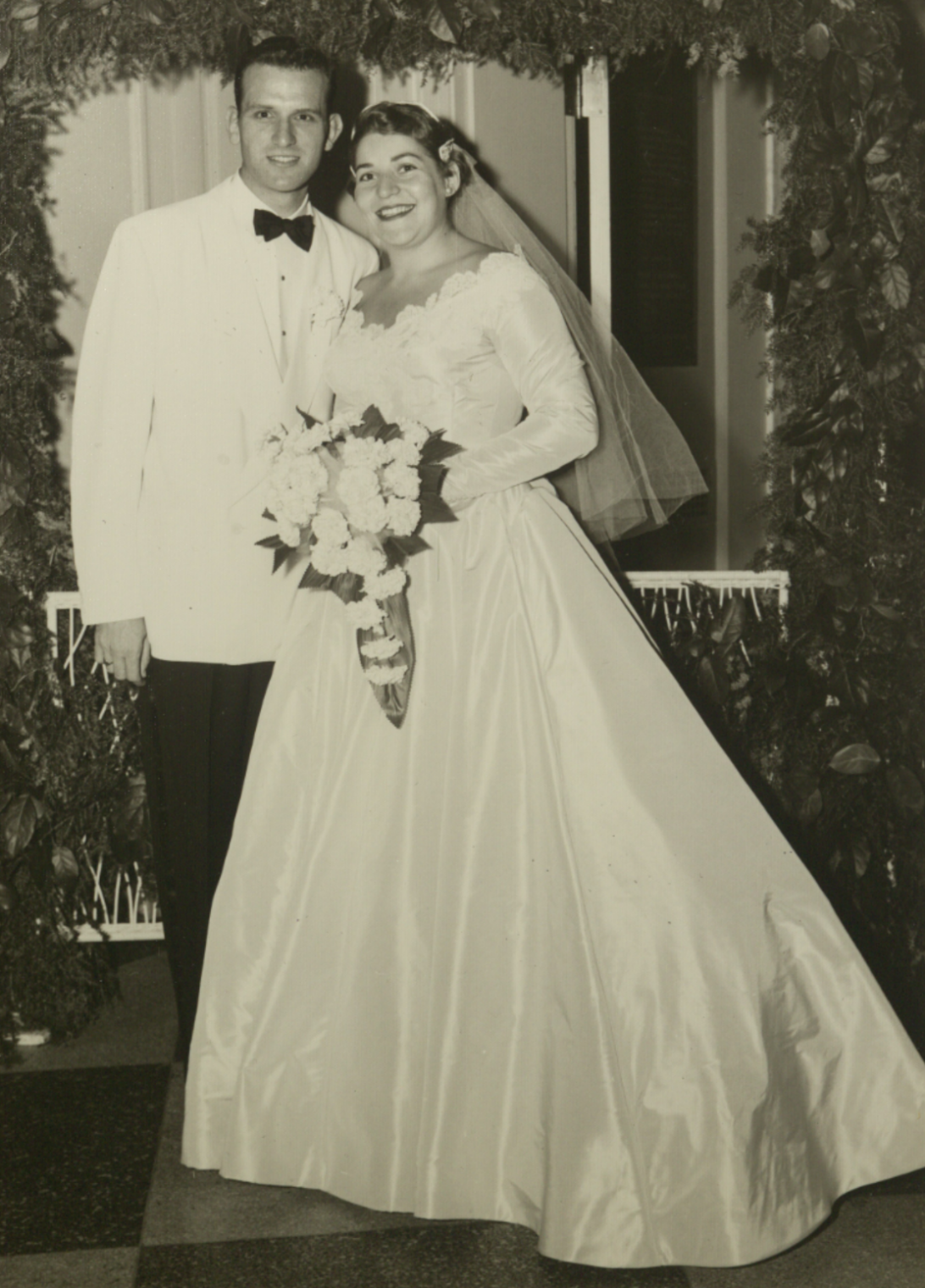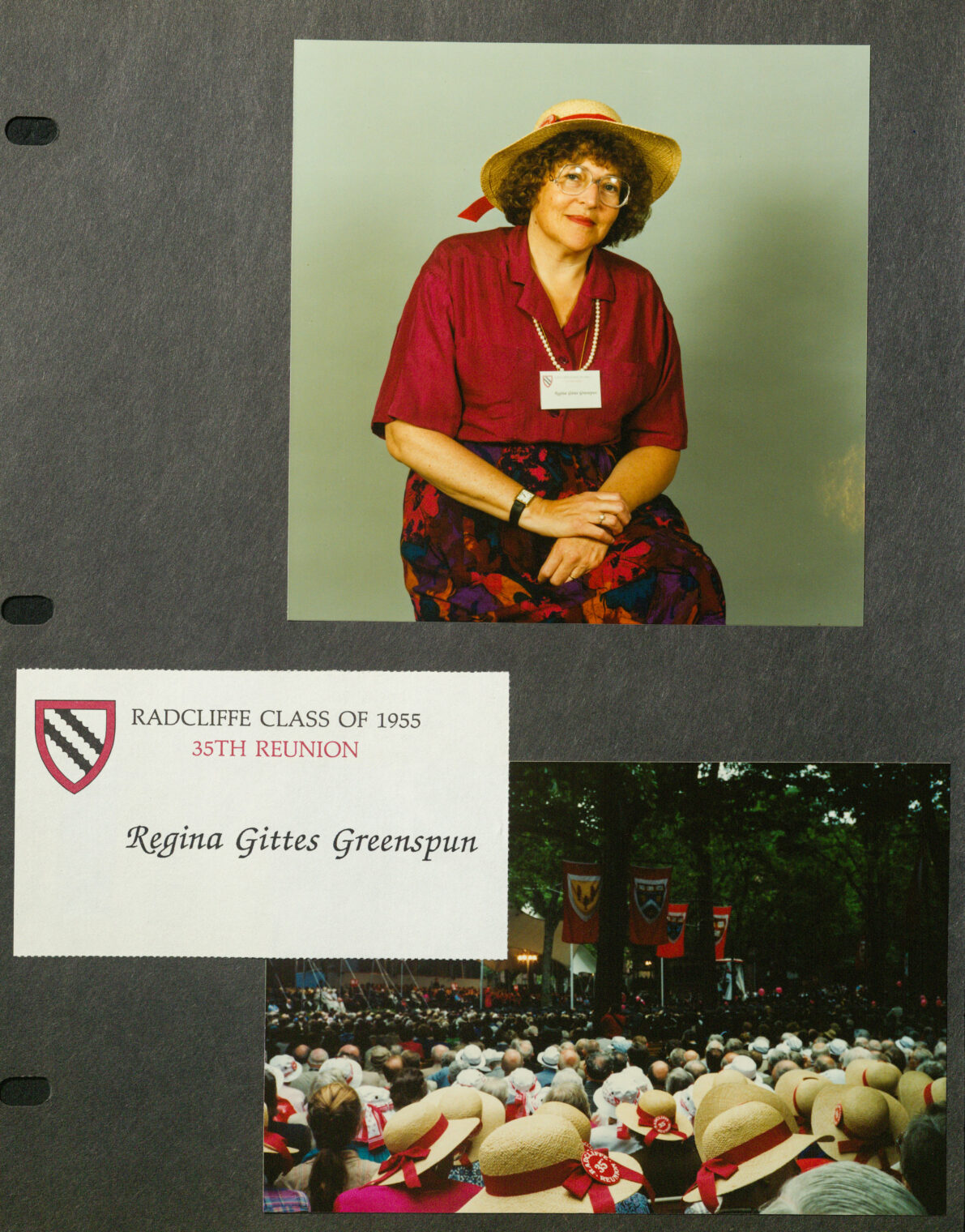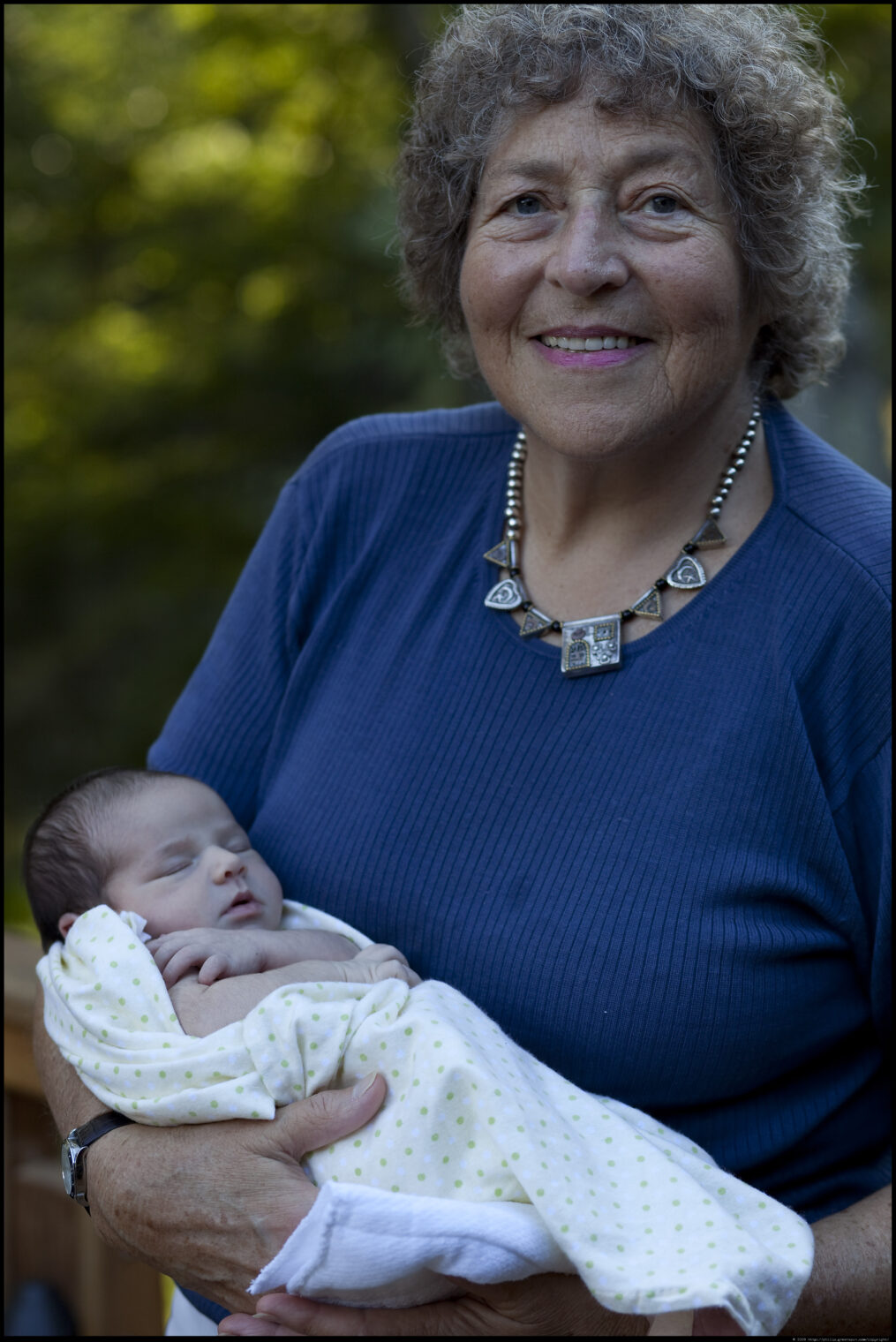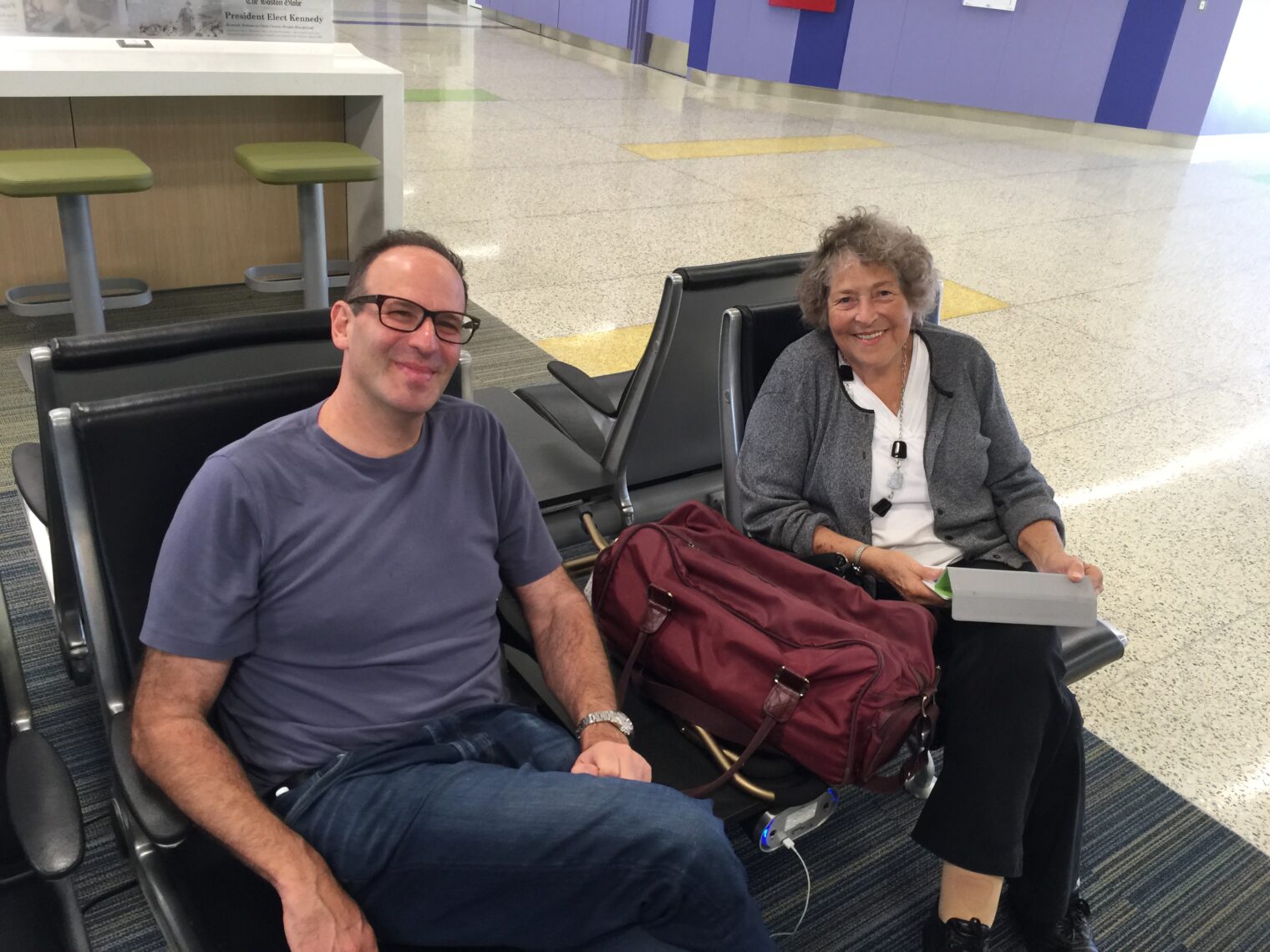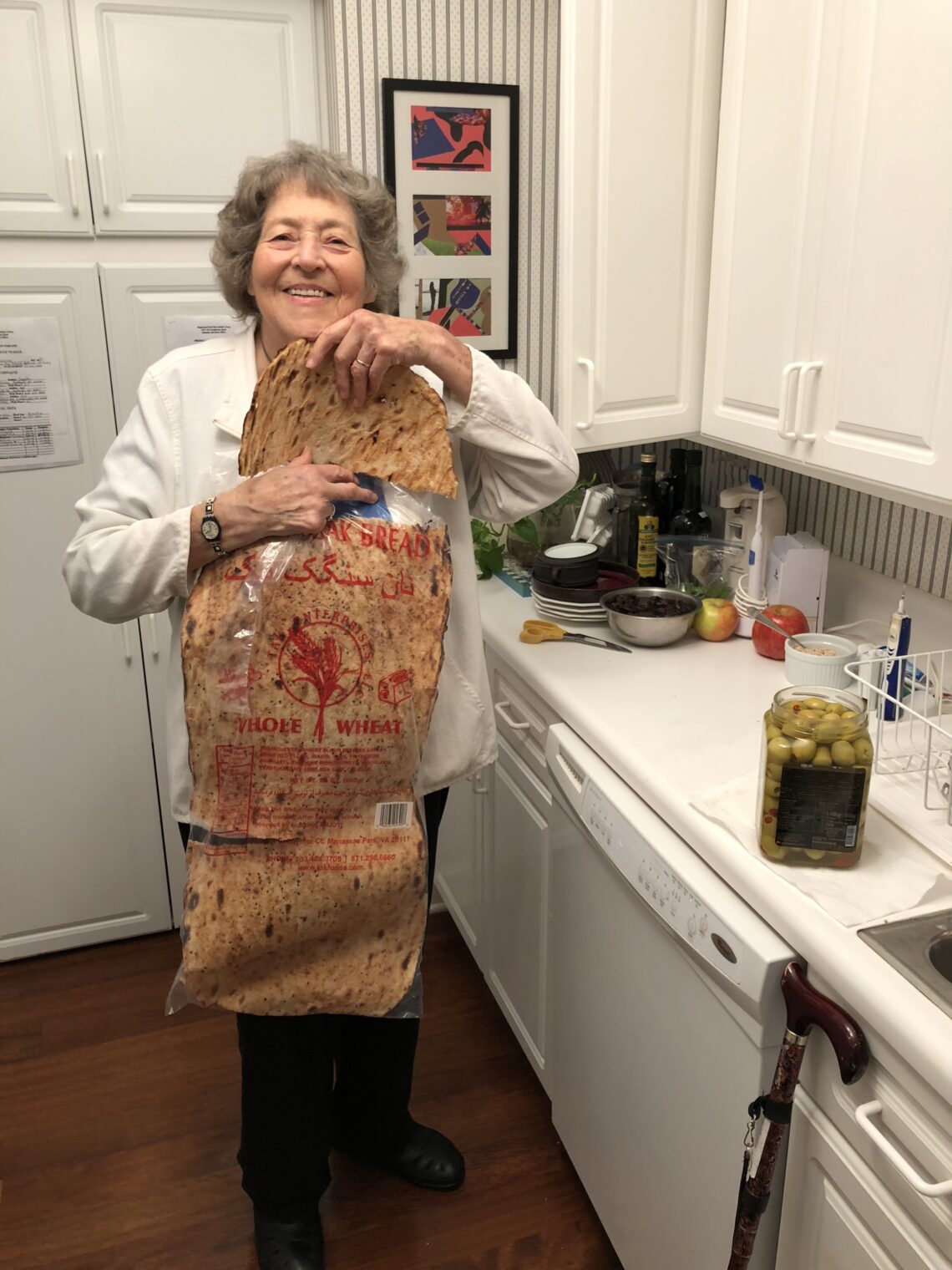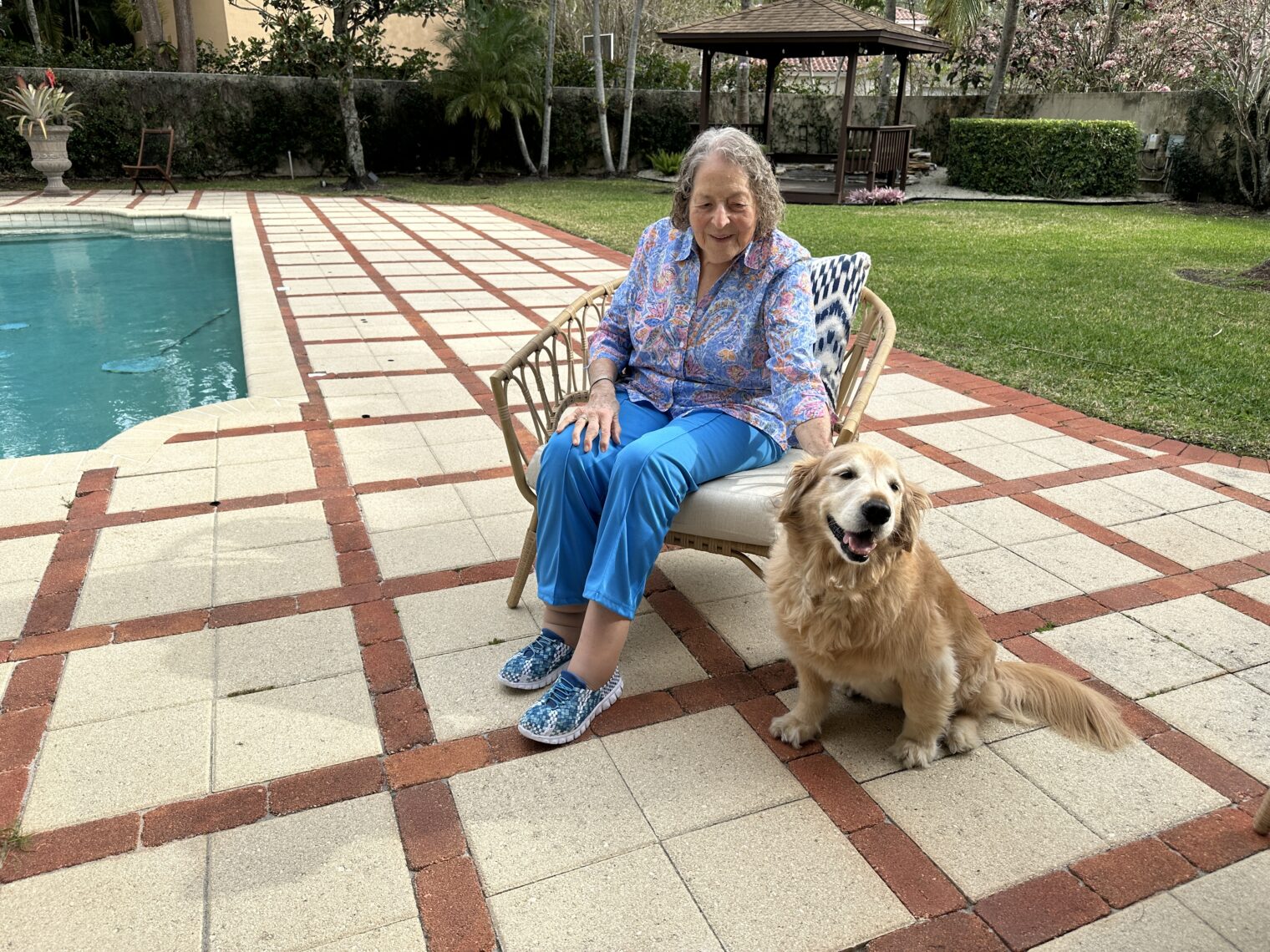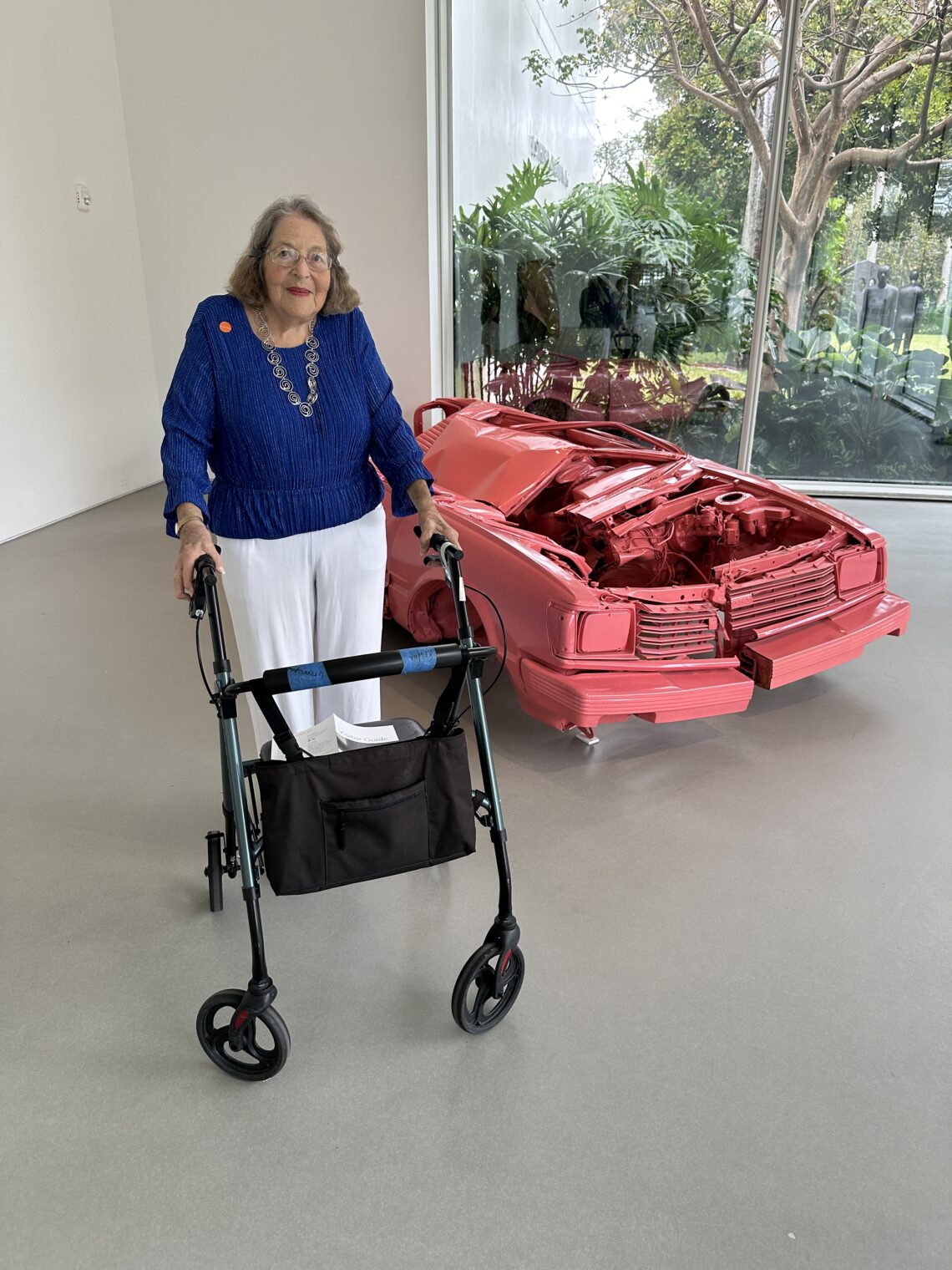Obituary of Regina Greenspun, 1934-2025
Regina Greenspun died at age 90 on January 6, 2025 at her home in Abacoa, Jupiter, Florida. My father wrote most of his own obituary, but my mother didn’t leave any guidance so this post should be considered as one person’s memory of Regina augmented by what was found in some recently scanned photo albums and other documents…
Regina moved to Florida in February 2024 and enjoyed spending at least 4 afternoons and dinners per week with her grandchildren until Thanksgiving 2024, at which point she developed pneumonia and began a steep decline from an already fragile state that included lymphedema and stage 4 chronic kidney disease.
Regina was born in Melrose, Massachusetts. Her father Nick, who owned a hardware store with his brothers that had been started by his father, liked to say that Marjorie (younger sister) was the prettiest girl in Melrose High School and Regina was the smartest. She was Class of 1955 at Radcliffe College, became a leader of Harvard Hillel, and remained involved for the rest of her life with Harvard and Radcliffe alumni events and the friendships she had formed at Harvard. In fact, she had a five-hour meeting with Harriett Eckstein (widow of Otto) on November 8, 2024 where the two of them reminisced about people they’d known at Radcliffe, shared their fears of the bad things that would happen after Donald Trump returned to the White House, and kept remarkably silent on their respective health challenges (stoicism was one of Regina’s core characteristics; she almost never described any medical issue or plan to see a doctor). She was also regularly in touch by phone with friends from her old neighborhood in Bethesda, Maryland.
Regina earned both bachelor’s and master’s degrees from Harvard/Radcliffe in Art History (bachelor’s thesis from 1955: The Synagogue and Its Architecture) and was an accomplished artist herself, well-trained in the fundamentals of classical drawing. One of her teachers was Lux Feininger and she kept in contact with him for decades after she graduated Harvard. Here’s an example of Regina’s student work (1957):
When her husband Nathaniel (married 1956; Nathaniel died in 2021) got a job in Washington, D.C., Regina moved there with him and became an art teacher in the D.C. Public School system. She suspended her career while we three kids (born 1961-65) were young, except for teaching on weekends at Washington Hebrew Congregation (a Reform temple), then resumed part-time work as an art consultant. She might, for example, help a law firm acquire 200 paintings and lithographs to decorate a new office. She also trained to become a tutor to dyslexic teenagers.
Regina patiently tried to teach us art skills and organized projects in various media, including baking enamel in the toaster oven and building sculpture from telephone wire (at least 50 different color combinations available in those glorious analog days). My standard line: “We were denied coloring books because they would stunt our creativity and were jealous of our cousin Doug who got as many coloring books as he wanted. Because of this training, discipline, and emphasis on creativity, I became a computer programmer while Doug became a Disney animator.”
Unlike today’s helicopter/snowplow moms, most of Regina’s hours were spent pursuing her own interests. We organized our own breakfast (unsweetened cereals, unlike the delicious commercial concoctions our lucky cousins got), got on the school bus, and grabbed our own after-school snack. Regina read 3-5 library books per week, got together with friends, and went to some weekday theater matinees with neighborhood moms. She’d cook dinner most nights and then our dad or a kid would do the cleanup. This was a transitional time for feminism in which upper-middle-class women did not work, had domestic help, could buy whatever they wanted on then-newish credit cards, and used some of their 100+ hours/week of leisure time to note as an uncontestable fact that they were oppressed by men. Despite the loss of certainty regarding gender roles that evolved during their marriage, my parents seldom argued. Nathaniel loved and treasured Regina until his death in 2021 and used to say that the happiest period of his life was after we three kids had moved out of the house because then he was able to have Regina to himself.
Our parents had an active social life. We tortured babysitters on at least 2 nights per week while our parents attended theater, concerts, and dinner parties at friends’ houses. They hosted dinner parties themselves at least once or twice a month. This was the 1970s so we were allowed to drink as much alcohol as we wanted at these events, usually preparing a weak bourbon and ginger ale. (Despite the unlimited booze available to us as kids, none of us turned into regular drinkers as adults.)
“I canceled out your father’s vote,” Regina would tell us proudly after every election. Our dad, who worked as a federal government economist, was a “Gerald Ford Republican” who cheered the deregulation efforts, such as for the airlines, initiated by President Ford and agreed about the importance of a balanced budget. Regina was more interested in local politics, especially the school board, and generally supported any proposal put forward by mainstream Democrats. She had no concerns about enlarging the size and role of government because she believed that Americans were uniquely positioned to innovate and produce, much as we had been in circa 1950 when she came of age. Productive Americans could never sink under the weight of the welfare state created by FDR and Lyndon Johnson because the next innovative world-dominating U.S. company would come along to pay for it. Given the recent decades of runaway growth in the U.S. stock market compared to foreign stocks, I think we have to rate her #MostlyRight as an international trade and macroeconomist.
(One of the school board issues in my day was around “Man: A Course of Study” in which we were taught that Eskimos leave behind old people who can’t keep up with migrations among hunting grounds. Some conservatives wanted Montgomery County (Maryland) to remove these materials, which they said taught children to abandon elderly parents. Regina was one of the progressives who wanted it, and similar classes, retained. If memory serves, the progressives won. Of course, the adults talked about this material far more than we 6th graders ever did!)
Regina traveled extensively around the U.S. and to Europe with her husband. With friends and relatives, she also went on organized tours to Asia and Africa that Nathaniel considered too adventurous. Regina loved to socialize and organized a move to the Maplewood Park Place senior community in Bethesda, Maryland in 2012 where she was a tireless organizer of committees and events, especially those having to do with art. There were some health scares beginning in 2018 that led us to fear the worst was at hand, but each scare was followed by a remarkable reboot, e.g., via pacemaker (thanks to Dr. Helen Barold for these extra years). Unfortunately, she began to experience episodes of confusion that worsened in January 2024, which resulted in the staff at Maplewood concluding that she could no longer stay in her “independent living” apartment. She lived briefly with us here in Abacoa, but decided that she preferred the “senior dorm” experience and moved to assisted living at Addington Place of Jupiter, a 15-minute walk away. She was delighted to be surrounded by her art collection and old furniture, but never got used to the 70-inch TV that I picked up for her at Costco (“why does the TV have to be so big?”). She eagerly participated in all of the organized activities, including trips to art galleries, museums, and even the Hard Rock Casino down in Hollywood, Florida.
Regina put a lot of energy into the grandmother role. She was fortunate to have my sister and brother, with their respective children, living close by for several decades, and loved family get-togethers. She and Nathaniel also took several grandchildren on individual trips, e.g., to National Parks out West or down to Florida. Despite my late start on having children (“if you think teenage parenting is bad it’s only because you haven’t seen old people with kids”), Regina made the effort to travel up to Boston while she was still able.
Regina is survived by 3 children, 11 grandchildren, and 3 great-grandchildren. A memorial service will be held at a future date at the Garden of Remembrance in Clarksburg, Maryland.
Here’s an example of Regina interviewed in 2015 (family history video example):
The photo below might be from high school:
here’s one from the wedding album (1956, age 22):
With my father, also at the 1956 wedding:
This is from the 1963 book, which means the baby might be me:
Regina’s parents, Nick and Cecile, rented houses across the street from each other (5 Ginger Plum Lane, Harwich, Cape Cod) every summer and we would spend two weeks there with our cousins (Marge’s kids):
Regina circa 1980 with our family’s miniature poodle:
Regina in 1982 with the artist who is the subject of Herman Perlman, his life and art, a book that she wrote (amazingly, available on Amazon 40+ years later!).
Here’s me and Regina at the Avebury stone circle in 1983 (my parents were in Britain and I had a business trip to Europe):
She traveled to Cambridge for the big college reunion years (1990):
Also from 1990, a portrait that my friend Henry and I made of Regina:
At the Great Wall of China in 1999, a trip with five neighbors (Lois, Ginny, Carolyn, Lorraine, and Regina):
A 2005 album page featuring Barbara Rippa, a Vermont-based college classmate (and roommate) with whom Regina would be in touch by phone every week or two here in Florida.
Here’s Regina in 2007 (age 73) in Africa (I think that Janet Robertson was a classmate at Radcliffe):
Another one from 2007, taken by a grandchild:
In 2009, holding a new grandchild:
I made it into Regina’s 2009 photo album with a little help from the Robinson R44.
Headed to Paris with me in 2016 (wedding of a former student at MIT then Baltic cruise, the first of two cruises that we did together (tip: become a hero among seniors on a cruise ship by paying for a parent’s ticket (word spreads quickly about this reversal of the apparently conventional arrangement)):
2018, in the independent living apartment she shared with Nathaniel (she loved what she called “ethnic food” and she’s holding some bread that I picked up on the way in from the Gaithersburg, Maryland airport):
Regina was passionate about family connections and wanted to push through her increasing infirmity to a grand-niece’s wedding in New Jersey in July 2022. Despite my awareness of the absurdity of listening to people vow permanent attachment in a society that offers profitable no-fault (“unilateral”) divorce, I flew up from Florida, rented a car, and drove her to the event. Here she is at a diner and then at a stop in her beloved Longwood Gardens, which was usually a stop for us during family trips to New York or Cape Cod (cue the unairconditioned 1970 Chevrolet Chevelle station wagon with dark green exterior (to match the hedges) and black vinyl seats (ouch!)):
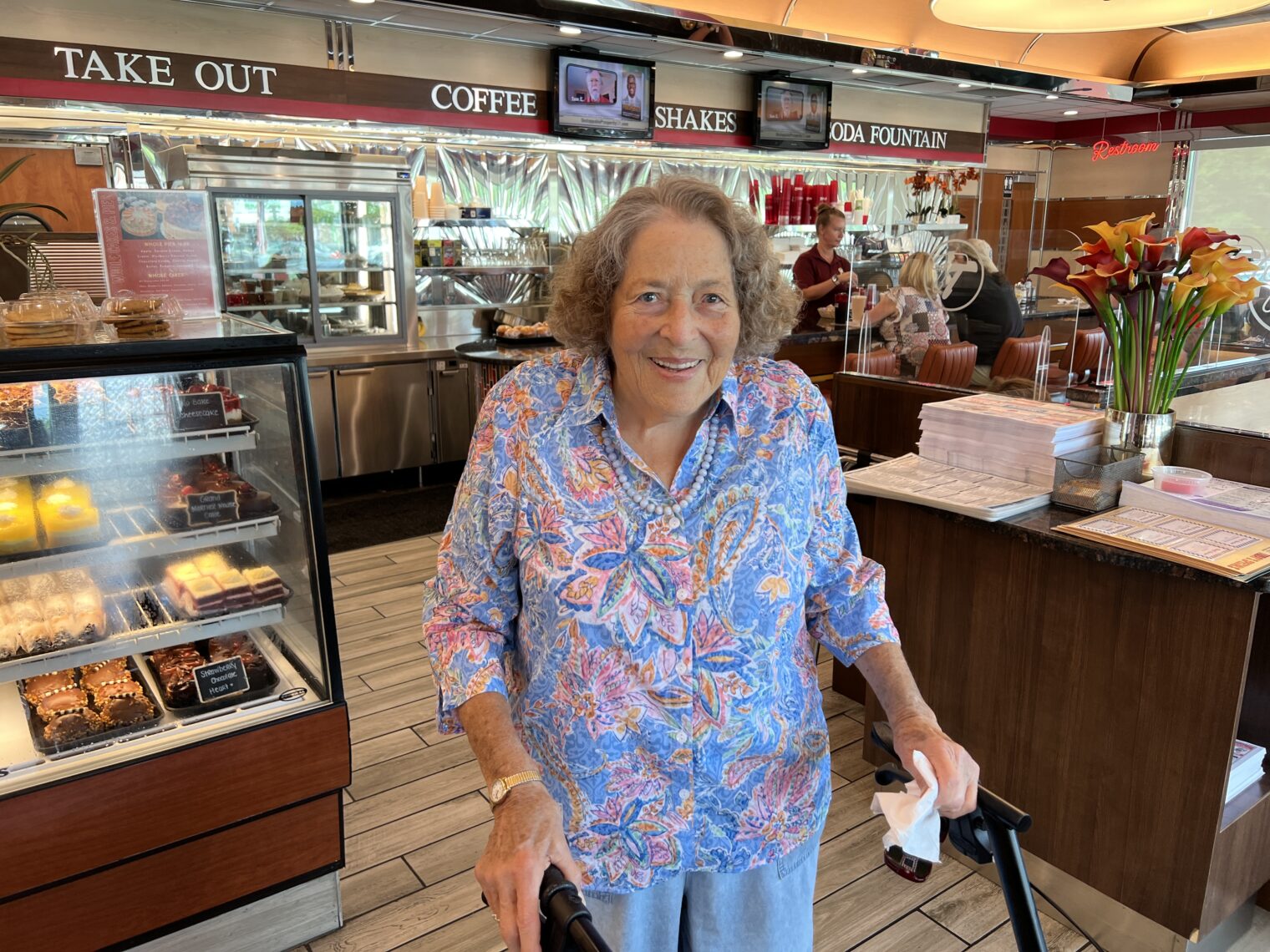
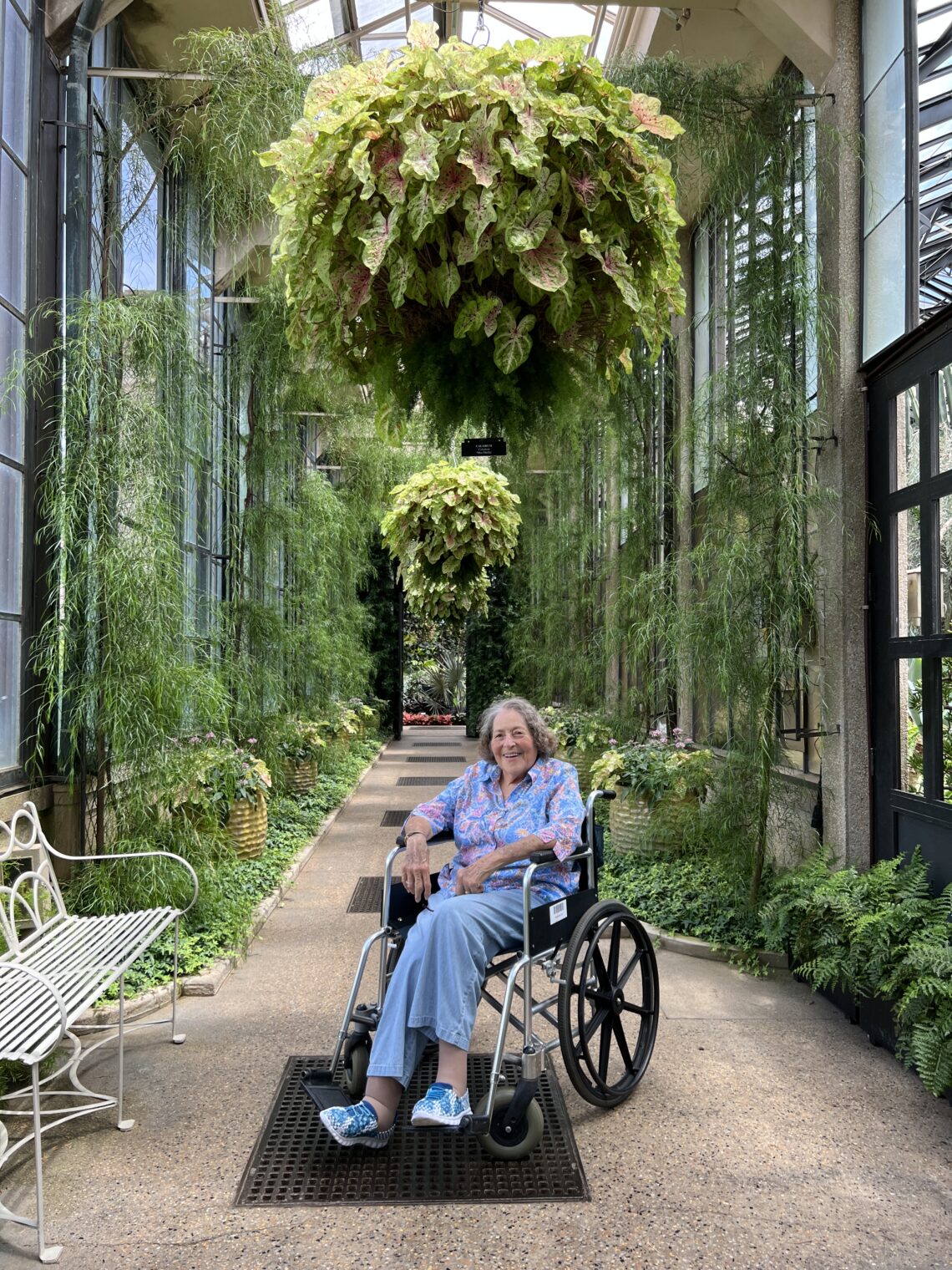
In February 2024, her first day in Florida (after being pushed out of independent living in Maryland and a couple of weeks before moving into assisted living), with Mindy the Crippler who was to become her almost-daily companion:
Regina’s passion for fine art never dimmed and she enjoyed revisiting the Norton Museum in West Palm Beach (March 3, 2024):
As with the pundits who said that television would be great because Americans would watch Harvard lectures and Shakespeare plays at home, we imagined that Regina would teach our kids fine art. Instead, they taught her to play pinball, pool, and table shuffleboard.
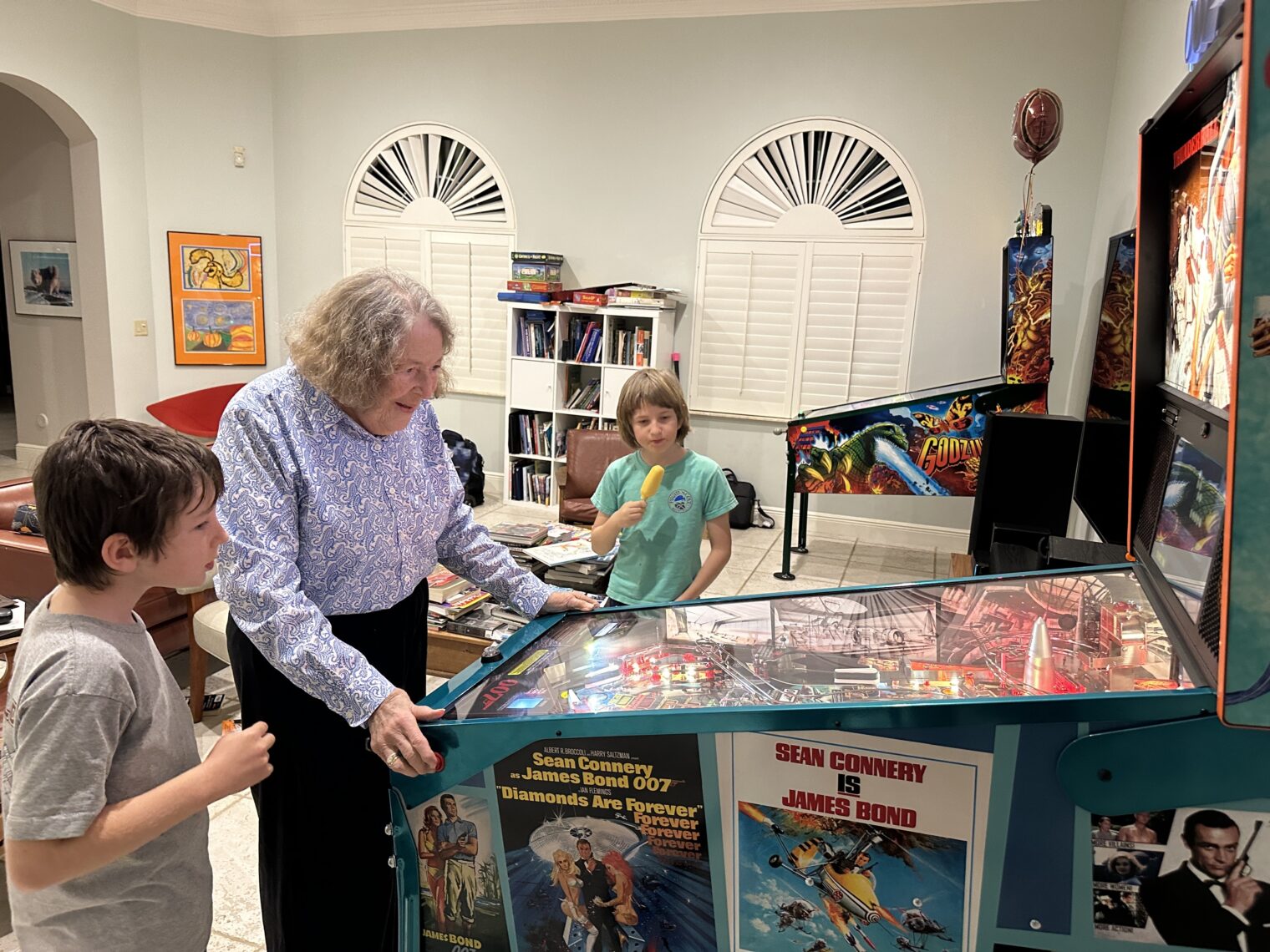
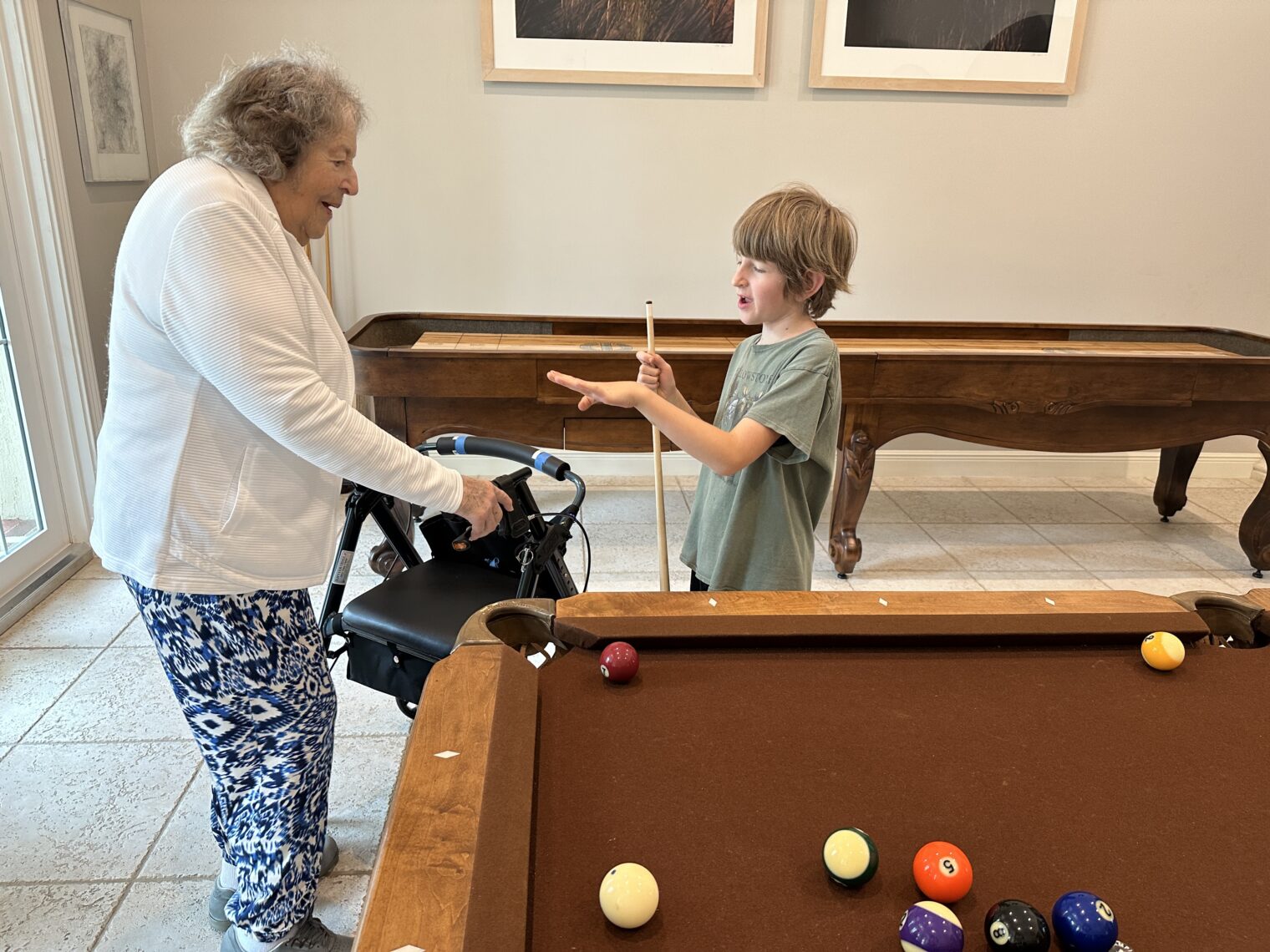
Mindy the Crippler liked to be Regina’s lap dog during thunderstorms:
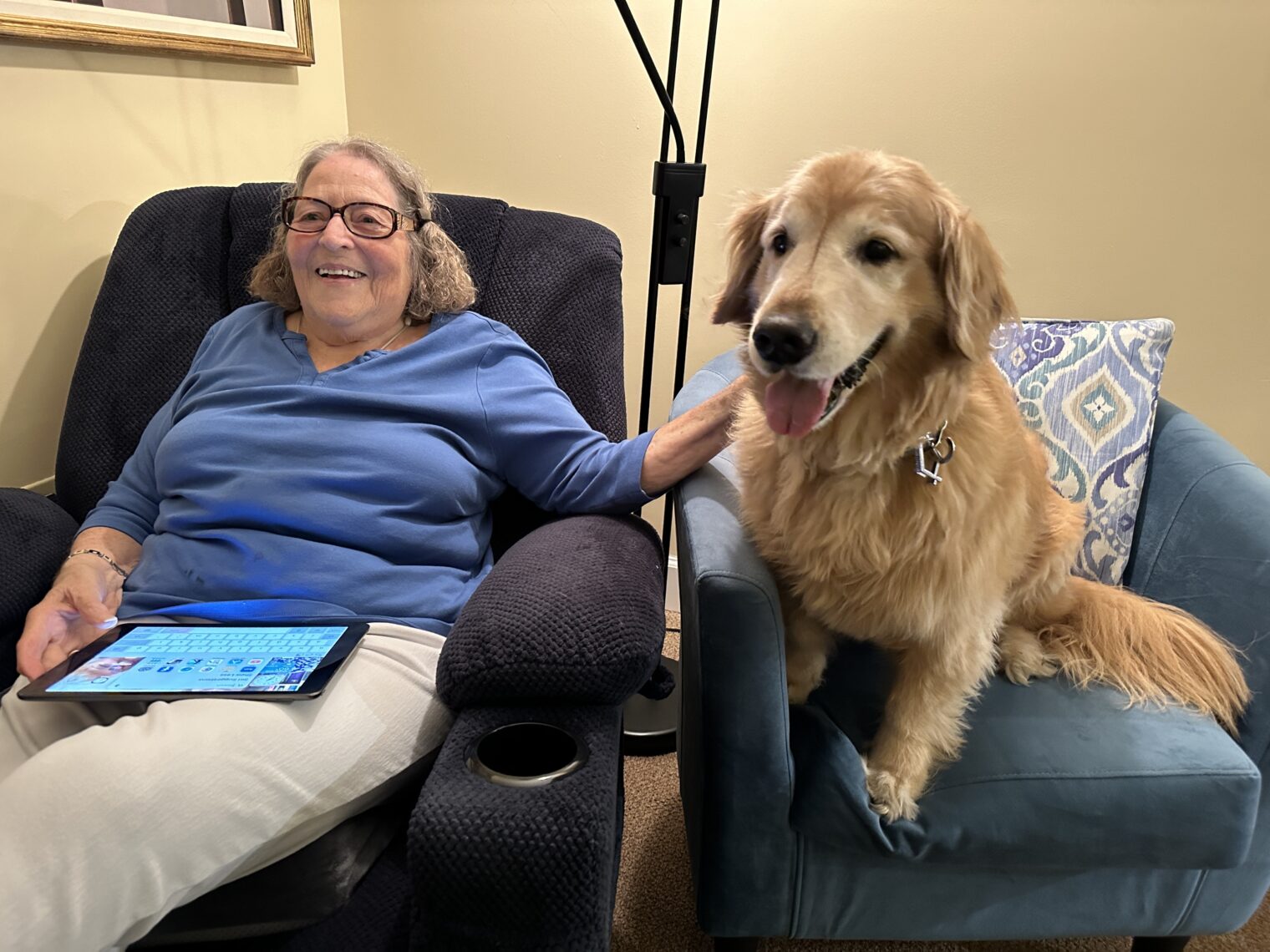
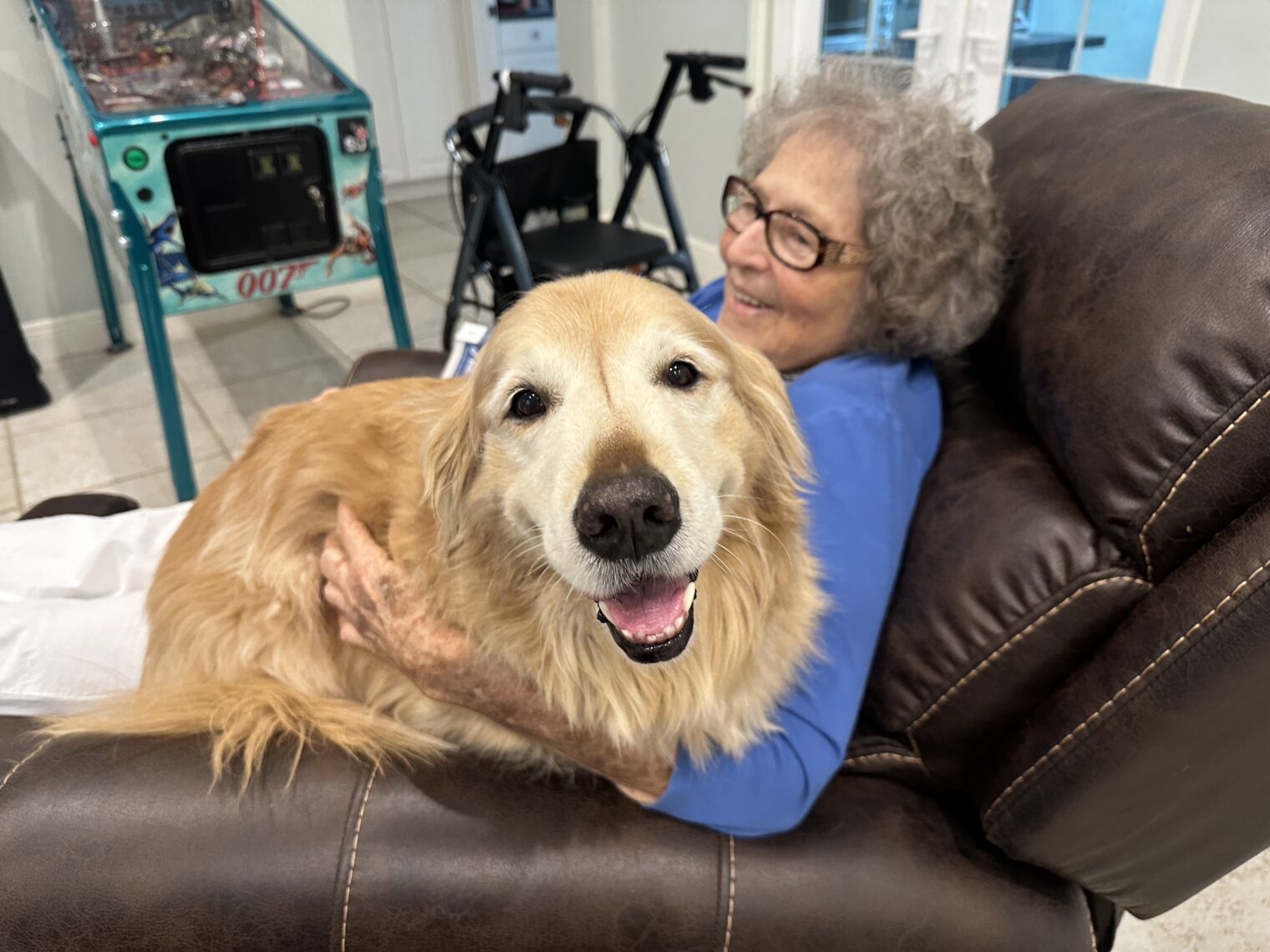
Her
Full post, including comments